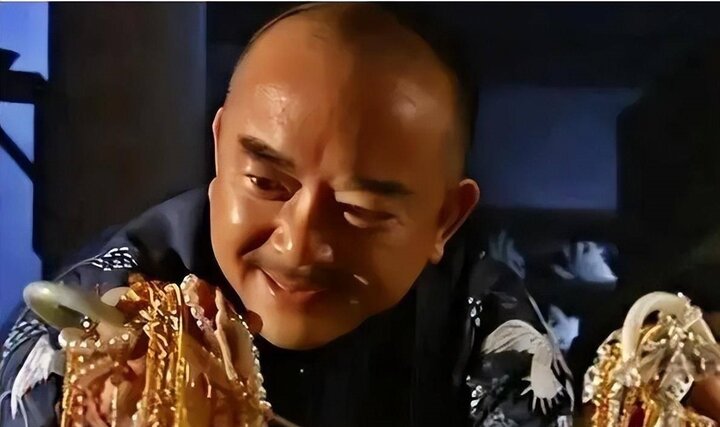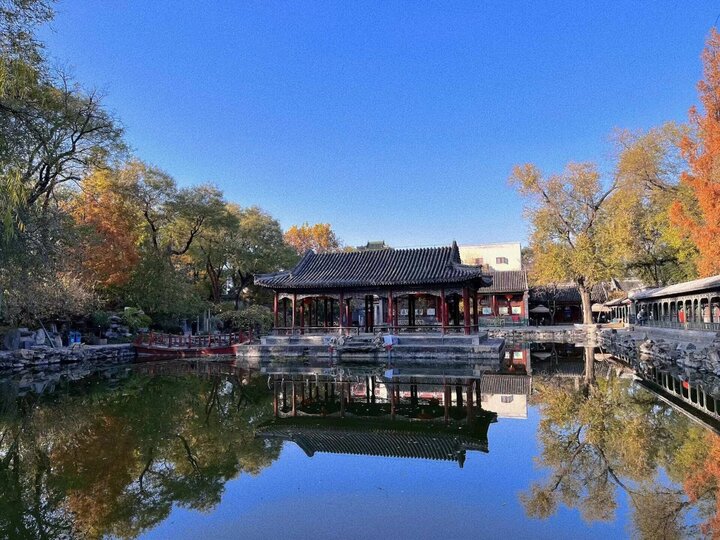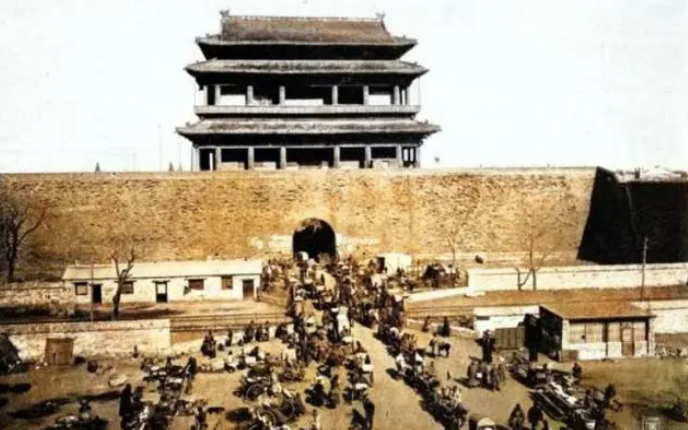Ho Than (1750 – 1799), a powerful minister under Emperor Qianlong of the Qing Dynasty, was famous as the most corrupt official in Chinese history.
According to historical records, at the time Ho Than was arrested, the assets confiscated from his house included 800 million taels of silver along with many ownership papers for shops, land… The total value was equivalent to the Qing Dynasty's treasury accumulated in 15 years.
The amount of assets was certainly directly related to Ho Than's corrupt behavior, but a significant portion of it was earned thanks to this official's own talent.

Creating the character Hoa Than on TV series. (Photo: Sohu)
Sharp trader
Ho Than was very astute in business, willing to invest in items that few people dared to do at that time. During the Qing Dynasty, mining was a risky industry because of the large investment capital, slow profits and complicated management, so many merchants did not dare to participate.
However, Ho Than went against the trend and opened coal mines in the two areas of Men Dau Cau and Huong Son. The reason Ho Than invested in the coal mining industry was because he saw the future of a developing industry. And history has proven that coal is an important resource in life and industrial fields. This shows that Ho Than has a modern and pioneering business mindset.
Ho Than's investment fields and investment projects are also very broad, including: finance, real estate, mining, logistics, medicine… He owns 12 pawnshops in Beijing, and also operates financial management offices, porcelain stores, bow and arrow stores, grain stores, restaurants, casinos, palanquin stores…
In feudal times, palanquins could be considered on par with today's cars. But Ho Than was able to monopolize the market for this item right in the capital.
In addition, Hoa Than entered the transportation sector, owning 80 large vehicles specializing in transporting goods for customers, operating in a manner similar to today's express delivery service.
However, real estate was the biggest source of money for this great official. In the 52nd year of the Qianlong reign, a number of uprisings broke out in several places. Landlords in many places sold their land and properties at very low prices to seek refuge. Ho Than saw the opportunity and spent a lot of money to accumulate a large amount of land.
As the country stabilizes and land prices rise, the land can be resold at a higher price, but most of it is rented out to generate a steady cash flow. In Beijing alone, Ho Than has 35 rental properties with a total of over 1,000 rooms. This shows Ho Than's vision and business audacity.

A corner of the garden in the Royal Palace, Ho Than's house. (Photo: Baidu)
Not only was Hoa Than good at making money, he was also very astute in managing assets. He applied the principle of “clear financial relations”, regardless of relatives or friends. Anyone who borrowed money had to write a loan note, pay interest, and have collateral.
For example, Ho Than's maternal grandfather once borrowed 2,000 taels of silver from him. Fearing that his grandfather would not be able to repay the debt on time, Ho Than forced him to use the land title deed as collateral. Ho Than's paternal uncle once borrowed 15,000 taels of silver from him. Ho Than lent him the money at an interest rate of one cent per month, and eventually the principal and interest amounted to 21,000 taels of silver.
Bring money to the emperor
Ho Than was considered an intelligent, clever and refined person. History books recorded that Ho Than “had gentle gestures, was not arrogant, spoke fluently, was humorous but was extremely vigilant”.
When he was with Emperor Qianlong, he always made the emperor feel very comfortable and secure. Whenever he encountered complicated court affairs, Emperor Qianlong always entrusted Heshen to handle them and the matters were always resolved satisfactorily.
At that time, the Qing Dynasty's Ministry of Internal Affairs was constantly facing a shortage of money, causing headaches for the emperor. The heads of this ministry at that time were all incompetent in business, causing many businesses outside the imperial court to continuously suffer losses.
Soon after Ho Than took office as the Minister of the Interior, he gave this poorly managed government apparatus a new look, not only covering its financial deficit but also achieving net profits.

Chongwenmen in the Qing Dynasty. (Photo: Baidu)
Because of Ho Than's outstanding abilities, Emperor Qianlong appointed him as the tax supervisor at Chongwenmen. Under his management, the tax revenue of this gate increased significantly and ranked it as the top tax gate in the country.
Ho Than, thanks to his own real ability, won the trust of Emperor Qianlong. Later, Qianlong gradually handed over all financial-related agencies to Ho Than to manage.
Ho Than successively held the positions of Minister of the Ministry of Finance, Minister of the Ministry of Finance, and Minister of the Interior. Thanks to his control of important financial agencies of the country and the favor of the emperor, Ho Than's corruption and bribery went smoothly, and his assets grew.



